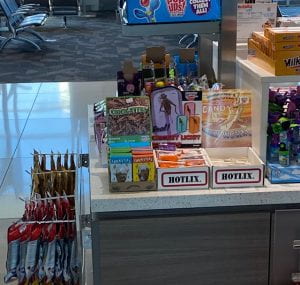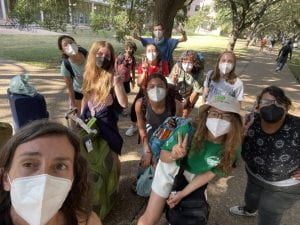The tropical rainforest and coral reef are two of the most biologically diverse ecosystems on Earth, and exploring both gave me a new appreciation for their complexity. Both ecosystems have intricate physical structures that create many different habitats—tall trees and layered canopies in the rainforest, and complex coral formations underwater. This structural diversity allows many species to find their own niches. In the rainforest, birds use different canopy layers to find food and shelter, while on the reef, soft corals create important habitat and shelter for small fish and invertebrates.
Soft corals are fascinating because, unlike hard corals, they don’t build massive calcium carbonate skeletons but still play a crucial role in reef ecosystems. They provide habitat complexity and contribute to reef resilience by offering shelter and breeding grounds for many organisms. Just like birds in the rainforest, soft corals are key species that influence the diversity and health of their environment. Both depend on delicate balances—birds rely on a steady supply of insects, fruits, and flowers, while soft corals depend on symbiotic relationships with algae that provide energy through photosynthesis.
One big difference is mobility: birds are active and move around quickly, influencing the ecosystem through seed dispersal and insect control, while soft corals are sessile but respond dynamically to currents and light, creating a vibrant, ever-moving underwater forest. Both, however, demonstrate how important biodiversity and interdependence are in maintaining ecosystem health.
Before this course, I expected fieldwork but didn’t realize how deeply connected I’d feel to these organisms. Watching birds flit through the rainforest canopy and snorkeling over waving soft corals were unforgettable experiences that showed me life at different scales and speeds. My least favorite moment was dealing with the bugs in the room at Las Cuevas—it was definitely a test of patience and made sleeping a challenge!
Three key lessons I’ll carry forward are:
-
Lionfish invasions threaten soft corals indirectly by disrupting the reef’s food web, highlighting the complexity of ecosystem interactions.
-
Soft corals are more sensitive to environmental stress than I thought, making their conservation crucial to reef health.
-
Bird diversity in tropical rainforests depends on habitat complexity and availability, showing how changes to one part of the ecosystem ripple outward.
Overall, the course taught me that both birds and soft corals are vital to their ecosystems, and protecting biodiversity means understanding these connections across very different but equally amazing habitats.







